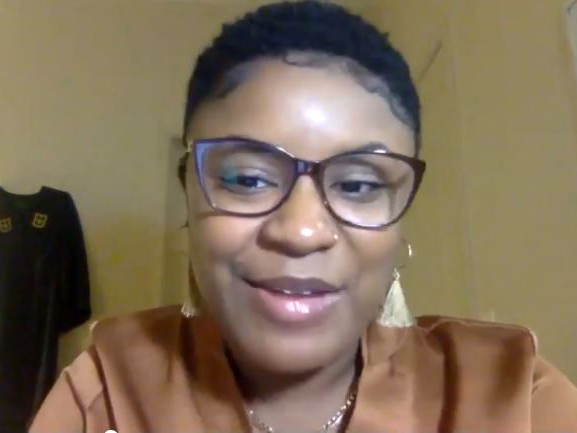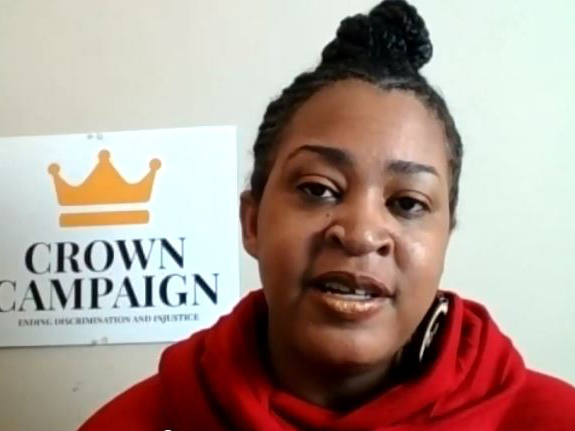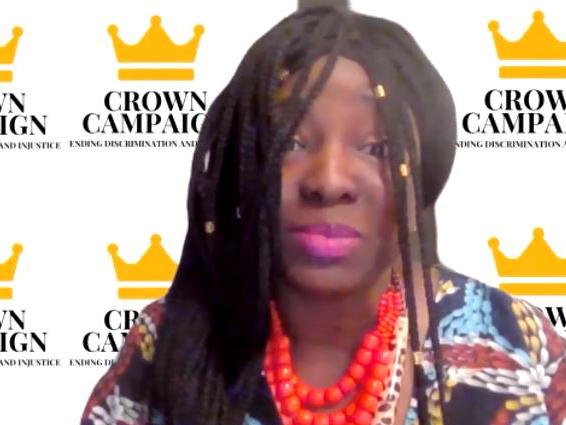Academics, students and activists met to discuss the CROWN (Creating a Respectful and Open World for Natural Hair) Act and the discrimination that Black women and men encounter because of their hair at the second annual CROWN Conference held at the Bloustein School on February 25, 2021. Panelists included Dr. Bernice Rumala, Co-founder of CROWN Campaign; Shemekka Ebony, Co-founder of CROWN Campaign; Karen Thompson, attorney at law, NJ Chapter of the ACLU; Christina Anderson, MPH Candidate Health Systems/Health Policy, Black Public Health Student Alliance; and Amber Rockson, MPH Candidate Epidemiology, Black Public Health Student Alliance. The panel was moderated by Patti O’Brien-Richardson, Associate Teaching Professor, at the Bloustein School.






The New Jersey law was signed into law on Dec. 19, 2019. It clarifies that prohibited race discrimination includes discrimination on the basis of “traits historically associated with race, including, but not limited to, hair texture, hair type, and protective hairstyles.” Eight states have passed the act.
Dr. O’Brien-Richardson opened the discussion by asking the group if anyone had ever experienced hair discrimination or had their hair touched without being asked for permission first or been asked if they could touch their hair.
Attorney Thompson noted that hair marks who we are as Black people and is a marker of culture. During the middle passage that culture was stolen from the Black community. Hair styles were a proxy for racism. By telling Black people that their hair was inferior made it easier to control Black people and was a part of systemic racism. She elaborated that African art uses fractals, which are patterns that go on infinitely, and can be found in cultural items such as clothing, buildings, and hair. By denying hair styles that made use of fractals, Black women and men were denied part of their cultural identity.
Dr. O’Brien-Richardson commented that the pandemic was felt especially hard by the Black community. Hair salons suffered severe financial losses. She asked Ms. Rockson and Ms. Anderson if and how salon closures affected them. Ms. Anderson said that her pandemic took the form of watching many TikTok hair tutorials. One option is to let hair do what it does naturally, but Ms. Anderson spent much of her time learning and perfecting “twists.” Ms. Rockson commented that she decided to let her hair grow out, which presented other challenges. She felt the need to wear more makeup when her hair was very short to demonstrate her femininity.
Both women agreed that wearing hair bonnets was alright during this time of Zoom classes, but Ms. Rockson felt that some professors unfamiliar with Black culture might think it strange and unprofessional. Ms. Anderson also noted that if a Black woman is perceived as looking unprofessional, she may not land a job that can have a significant impact on her income.

Dr. Rumala and Ms. Ebony responded to Dr. O’Brien-Richardson’s query regarding what hopes they had for the new administration. Ms. Ebony started by saying that she’s very hopeful that women will be more confident with Vice-President Kamila Harris and that the Vice-president will be able to take a leadership role for Black women’s issues. Dr. Rumala added that she hoped that credit be given to grass roots advocates for the CROWN act and that they not be overlooked for the important work that they do.
Ms. Rockson and Ms. Anderson next addressed the issue of health equity and how hair shapes our health. Ms. Rockson noted that many hair straighteners contain lye and other chemicals that are extremely toxic. Other products contain endocrine disruptors which can lead to early puberty, and therefore, reproductive cancers. She cited a statistic that Black women are 31% more likely to develop breast cancer than other populations. This leads to major health care disparities considering that Black women have more limited access to health care. Ms. Anderson added that personal care products such as talcum powders and tampons may contain harmful chemicals. Skin whiteners contain mercury. These products may or may not be regulated for safety. Tampons that contain chemicals and are highly absorbent may cover up the heaviness of a woman’s menstrual flow. This may in turn obscure a gynecological problem such as fibroid tumors because a woman is less aware of her body. She added that choosing to use a “natural” product is usually costlier.
It was noted that Black women not only straightened their hair but also dyed it. Black women are also more likely to suffer from dementia. Ms. Thompson asked if this was because of the “toxic bombs” that Black women used on their hair. She noted that corporations were making lots of money on Black women’s hair, but they were not helping black women. Some hair styles may not be viewed as “professional” and may deny Black women the stature and jobs which they are due.
Attorney Thompson concluded the discussion by reminding the group that their rights are protected by the Division of Civil Rights in the state of New Jersey. Employers and schools must obey the law and the Division of Civil Rights will bring cases on behalf of those whose rights were abrogated. Dr. Rumala advised students to advocate for themselves and not to accept institutional racism. She continued that research needs to be done in terms of white papers and refereed journal articles so that the research will be there for activists to refer to when drafting legislation and testifying before state legislatures and the U.S. Congress.
